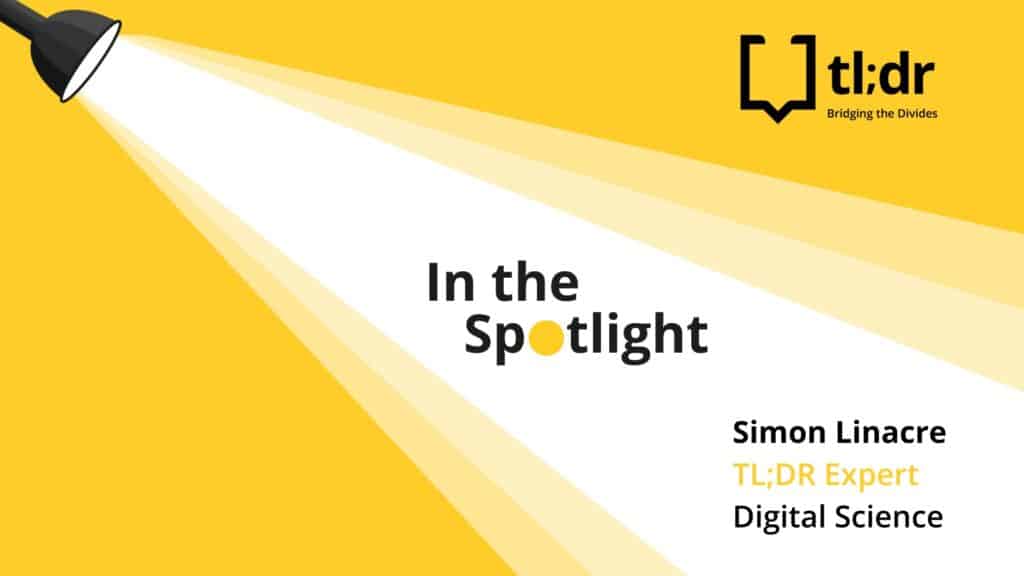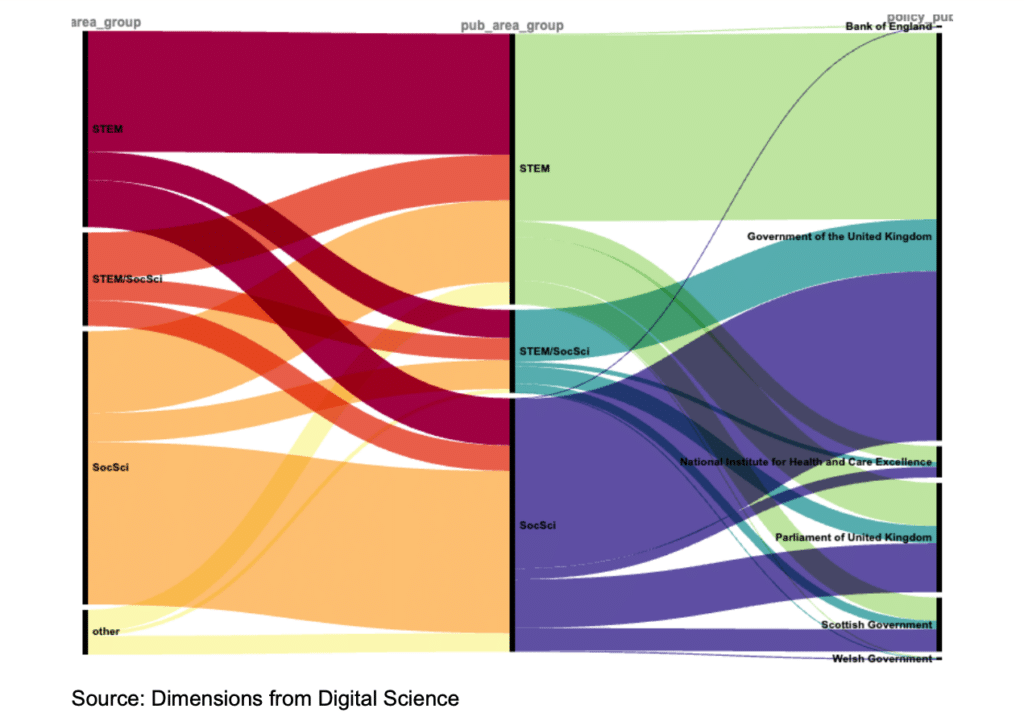
Following on from last week’s Spotlight post on social science research and its potential contribution to UK research and innovation, here we take a look at the second key ingredient to improve the UK’s STEM research: how vital the social sciences are in developing robust policy making.
The report on which these Spotlight pieces have been based – Reimagining the Recipe for Research & Innovation by the Academy of Social Sciences (AcSS) – has received huge coverage since its publication in January, with the “Secret Sauce” report featured in the Financial Times, Nature, Times Higher Education, WonkHE and Research Professional among others, and further news outlet coverage (see Altmetric). Interestingly, what we can see here is the embodiment of the second ingredient identified in the report’s ‘secret sauce’, namely how social science research itself can have an impact on UK policy making. One way this can happen is through coverage of social science research in national, international and industry media.
Cooking up a storm
The AcSS report seeks to elucidate how the UK’s research and innovation (R&I) can improve, which the report argues is through targeted investment in social sciences as a complement to STEM research. The authors – which include Dr Juergen Wastl and Kathryn Weber-Boer from Digital Science – recognize the role social sciences can play to see that the UK’s competencies are maximized when it comes to overall R&I investment.
So what is really meant for the second ingredient to be “critical for good policy development”? Using Dimensions data, the report’s authors can see not only how many publications in different research areas receive funding, but how influential they are by being cited in policy documents in the UK. While many more STEM research projects are funded, around 3% of these end up being cited in policy documents, but for social sciences this rate doubles to 6%. Furthermore, when both STEM and social sciences are included in a funded research project, the rate increases by another 50% again to 7.5%.
In other words, funded research in social science is more likely to influence policy than STEM research in relative terms, and both combined even more so. Furthermore, the ‘translation rate’ from grants into publications and then into policy documents is higher for social science research than for STEM.
An additional impact can be seen in the chart below, which shows the number of policy documents per grant category (on the left of the chart) and the per publication category (in the middle), but with the fields of health sciences and biomedical and clinical sciences removed. What we can see is that policy documents in every category cite grants and publications produced in the others. Perhaps most importantly, nearly half of UK policy documents from 2012–2022 cited on social science-related or joint combined social science grants.

Funded research in social science is more likely to influence policy than STEM research in relative terms, and both combined even more so.
Case study
An example of how this has worked in practice is from the pressing issue of climate change, where the UK-based Centre for Climate Change & Social Transformations (CAST) investigates systemic and society-wide transformations that are required to address climate change. By researching and understanding the social transformations that are necessary to develop a low-carbon society, CAST can have a huge impact on affecting the behaviors of citizens, perhaps even more than science-based solutions whose impact might be minimized if not adopted by the population at large.
Next Time
The next ingredient is… Social science underpins smart and responsible innovation.




























